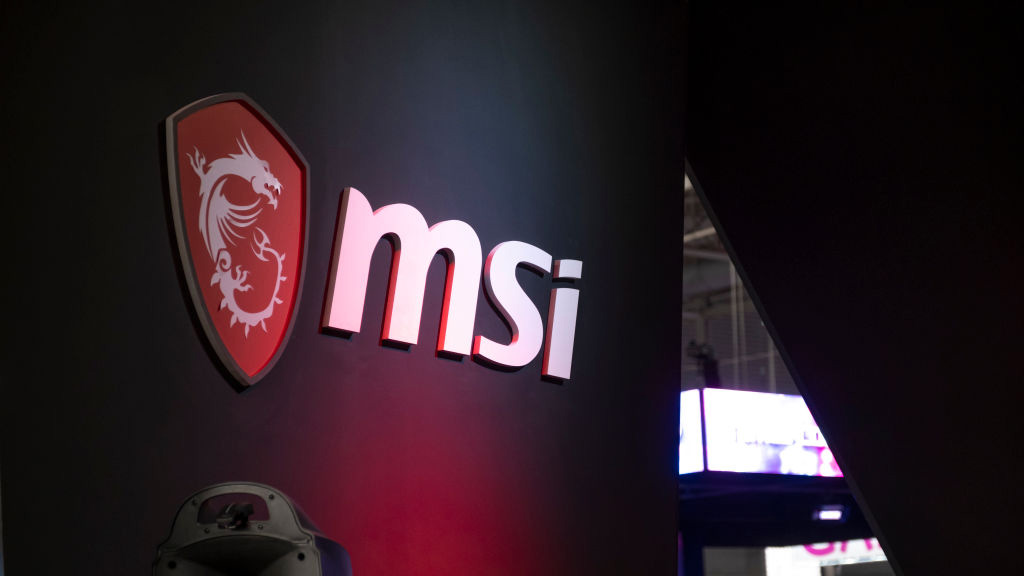MSI to release securer BIOS settings after critical flaw discovered
The firm has admitted it essentially disabled Secure Boot on its motherboards in an attempt to improve customisability


Micro-Star International (MSI) has announced it will release new BIOS files for its motherboards following the discovery of Secure Boot settings that left approximately 290 of the company’s motherboards vulnerable to malware.
Motherboards made by the company came with insecure security options by default, in a setting that the firm has now committed to changing in a future update.
RELATED RESOURCE

Threat hunting for MSPs
Are you ready to take your Managed Security Service to the next level?
Security researcher Dawid Potocki was the first to publish findings on the vulnerability after discovering that his firmware accepted any OS image, whether or not it carried a legitimate signature.
Potocki discovered that MSI had set its Secure Boot as ‘Enabled’, but the default on motherboards was ‘Always Execute’ resulting in any OS image being accepted by the firmware.
Users seeking the Microsoft-recommended Secure Boot settings would have to manually go into motherboard settings and change ‘Image Execution Policy’ to ‘Deny Execute’.
Secure Boot is a firmware process that protects the Unified Extensible Firmware Interface (UEFI), the internal architecture that handles the booting of operating systems within a computer. It validates the safety of files launched when a device starts by verifying each carries a valid signature and kills processes that fail these checks.
Threat actors that compromise core systems could take full control of a victim’s machine, leading to extensive data loss, or install malware such as a rootkit that persists even after a full system reinstall.
Get the ITPro daily newsletter
Sign up today and you will receive a free copy of our Future Focus 2025 report - the leading guidance on AI, cybersecurity and other IT challenges as per 700+ senior executives
An MSI spokesperson told IT Pro that the choice to roll out the decreased security measures came about after a review of “the product characteristic of our motherboard and target audience in the consumer market”. The firm stressed that it is in compliance with Microsoft's design guidance.
“We preemptively set Secure Boot as Enabled and 'Always Execute' as the default setting to offer a user-friendly environment that allows multiple end-users flexibility to build their PC systems with thousands, or more, of components that included their built-in option ROM, including OS images, resulting in higher compatibility configurations,” MSI stated on its dedicated subreddit.
“In response to the report of security concerns with the preset bios settings, MSI will be rolling out new BIOS files for our motherboards with 'Deny Execute' as the default setting for higher security levels.
“MSI will also keep a fully functional Secure Boot mechanism in the BIOS for end-users so that they can modify it according to their needs.”
When IT teams or individual users can expect to receive the update has not been revealed by MSI.
The post on its subreddit has already received critical responses, pointing out that the insecure default settings were not made clear in any of the firm’s BIOS update changelogs.
The full list of affected motherboards was listed by Potocki on a GitHub repository in December, along with instructions for manually fixing the issue.
Potocki identified that the issue was first introduced in an update released around Q3 2021, but was unable to determine the specific version.
In November 2022, Lenovo patched ThinkPad, Yoga, and IdeaPad devices due to a vulnerability that allowed for UEFI Secure Boot to be deactivated.
At the time, concerns were raised over the potential for businesses to fall vulnerable to malware such as ransomware through the vulnerability, particularly given the propensity for laptops such as these to be used in an office environment.

Rory Bathgate is Features and Multimedia Editor at ITPro, overseeing all in-depth content and case studies. He can also be found co-hosting the ITPro Podcast with Jane McCallion, swapping a keyboard for a microphone to discuss the latest learnings with thought leaders from across the tech sector.
In his free time, Rory enjoys photography, video editing, and good science fiction. After graduating from the University of Kent with a BA in English and American Literature, Rory undertook an MA in Eighteenth-Century Studies at King’s College London. He joined ITPro in 2022 as a graduate, following four years in student journalism. You can contact Rory at rory.bathgate@futurenet.com or on LinkedIn.
-
 Hackers are targeting Ivanti VPN users again – here’s what you need to know
Hackers are targeting Ivanti VPN users again – here’s what you need to knowNews Ivanti has re-patched a security flaw in its Connect Secure VPN appliances that's been exploited by a China-linked espionage group since at least the middle of March.
By Emma Woollacott
-
 Broadcom issues urgent alert over three VMware zero-days
Broadcom issues urgent alert over three VMware zero-daysNews The firm says it has information to suggest all three are being exploited in the wild
By Solomon Klappholz
-
 Nakivo backup flaw still present on some systems months after firms’ ‘silent patch’, researchers claim
Nakivo backup flaw still present on some systems months after firms’ ‘silent patch’, researchers claimNews Over 200 vulnerable Nakivo backup instances have been identified months after the firm silently patched a security flaw.
By Solomon Klappholz
-
 Everything you need to know about the Microsoft Power Pages vulnerability
Everything you need to know about the Microsoft Power Pages vulnerabilityNews A severe Microsoft Power Pages vulnerability has been fixed after cyber criminals were found to have been exploiting unpatched systems in the wild.
By Solomon Klappholz
-
 Vulnerability management complexity is leaving enterprises at serious risk
Vulnerability management complexity is leaving enterprises at serious riskNews Fragmented data and siloed processes mean remediation is taking too long
By Emma Woollacott
-
 A critical Ivanti flaw is being exploited in the wild – here’s what you need to know
A critical Ivanti flaw is being exploited in the wild – here’s what you need to knowNews Cyber criminals are actively exploiting a critical RCE flaw affecting Ivanti Connect Secure appliances
By Solomon Klappholz
-
 Researchers claim an AMD security flaw could let hackers access encrypted data
Researchers claim an AMD security flaw could let hackers access encrypted dataNews Using only a $10 test rig, researchers were able to pull off the badRAM attack
By Solomon Klappholz
-
 A journey to cyber resilience
A journey to cyber resiliencewhitepaper DORA: Ushering in a new era of cyber security
By ITPro

